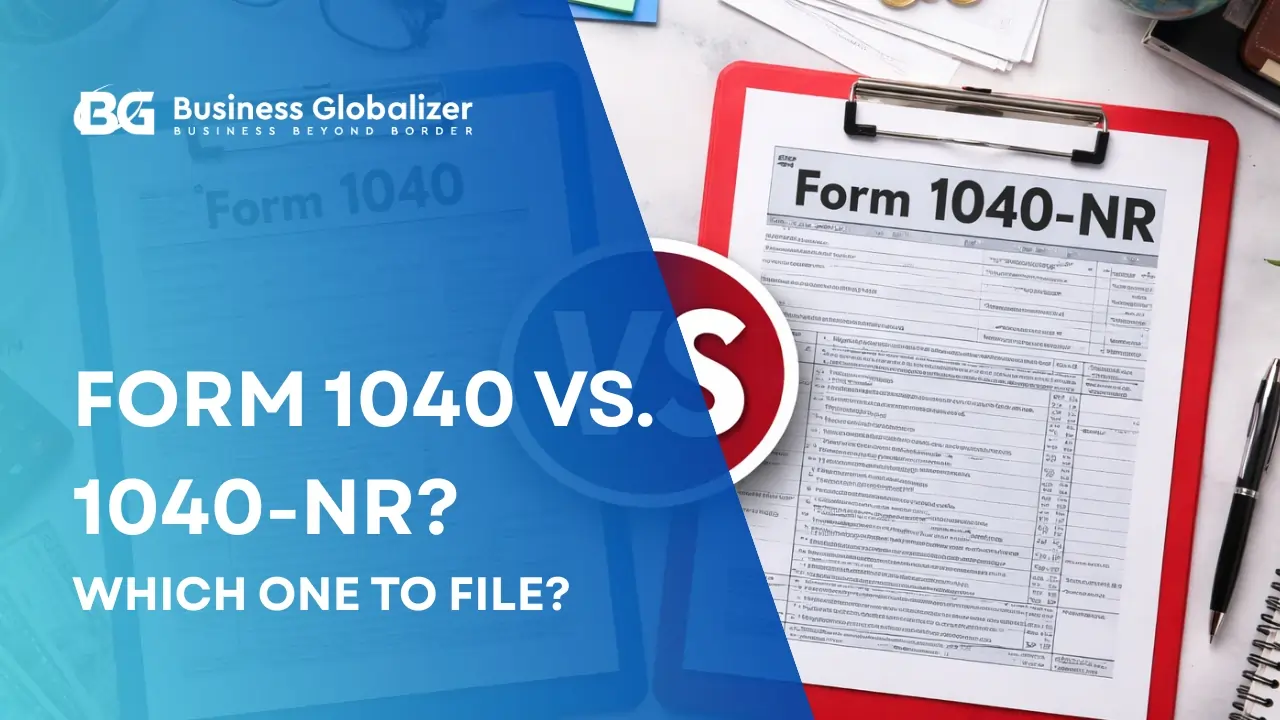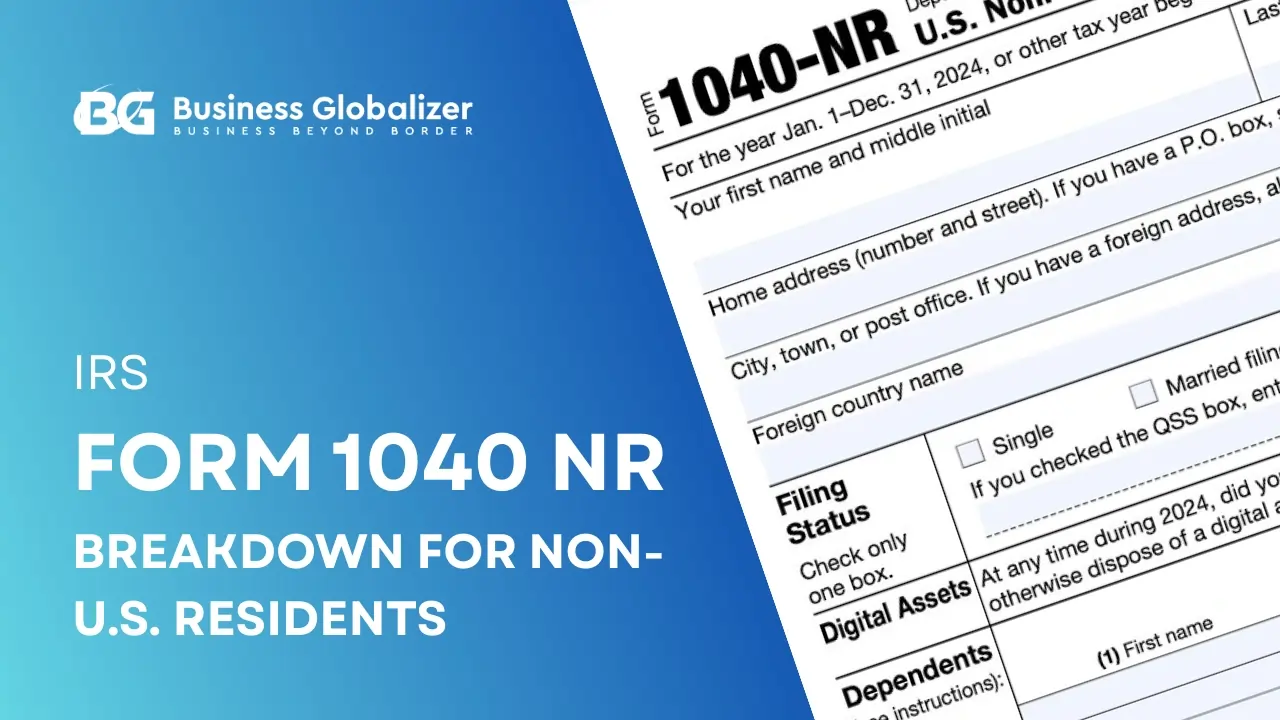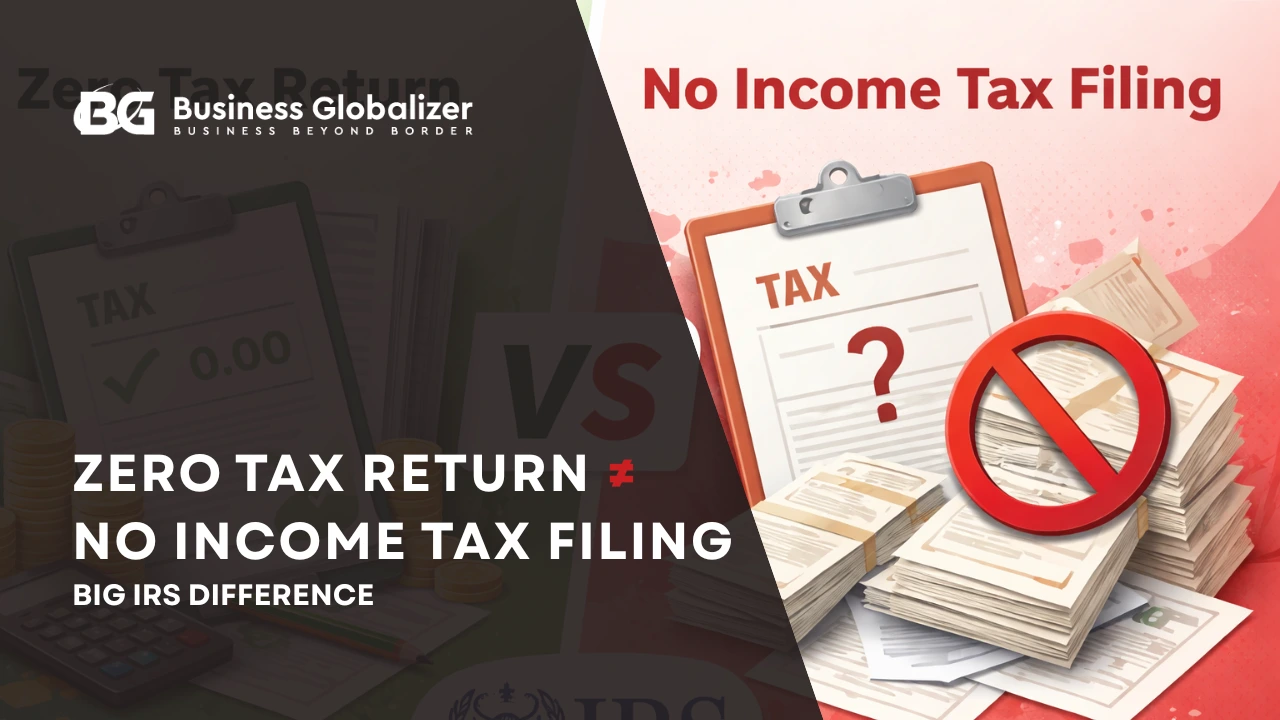Hello, there!
Are you involved in international business? If you are, “Double Taxation” is not a foreign concept to you. Still, you might wonder, “How Does Double Taxation Work?”
Double taxation occurs when two countries levy taxes on the same income or profits, leaving you with a diminished bottom line and numerous headaches. Fortunately, this is where Double Taxation Treaties come to the rescue.
Intrigued? You should be! These treaties are like superpower alliances between countries, designed to keep you from being taxed twice on your hard-earned profits. So, if you are an entrepreneur looking to expand into international markets, understanding these treaties is a must.
Then what are we waiting for? Let us dive in and learn everything we can about this life-saving feature, shall we?
What Is Double Taxation?
The first question that needs to be answered is, “What is double taxation?” Let’s discuss this briefly; for details, you can always check our other blogs.
Double taxation means the same assets, income, or earnings are taxed twice at different levels. This taxation principle can be applied to both corporations and individuals. Also, when there is international trade, this tax is applied in two different countries.
There are two types of double taxation;
- Corporate or Economic Double Taxation.
- International or Legal Double Taxation.
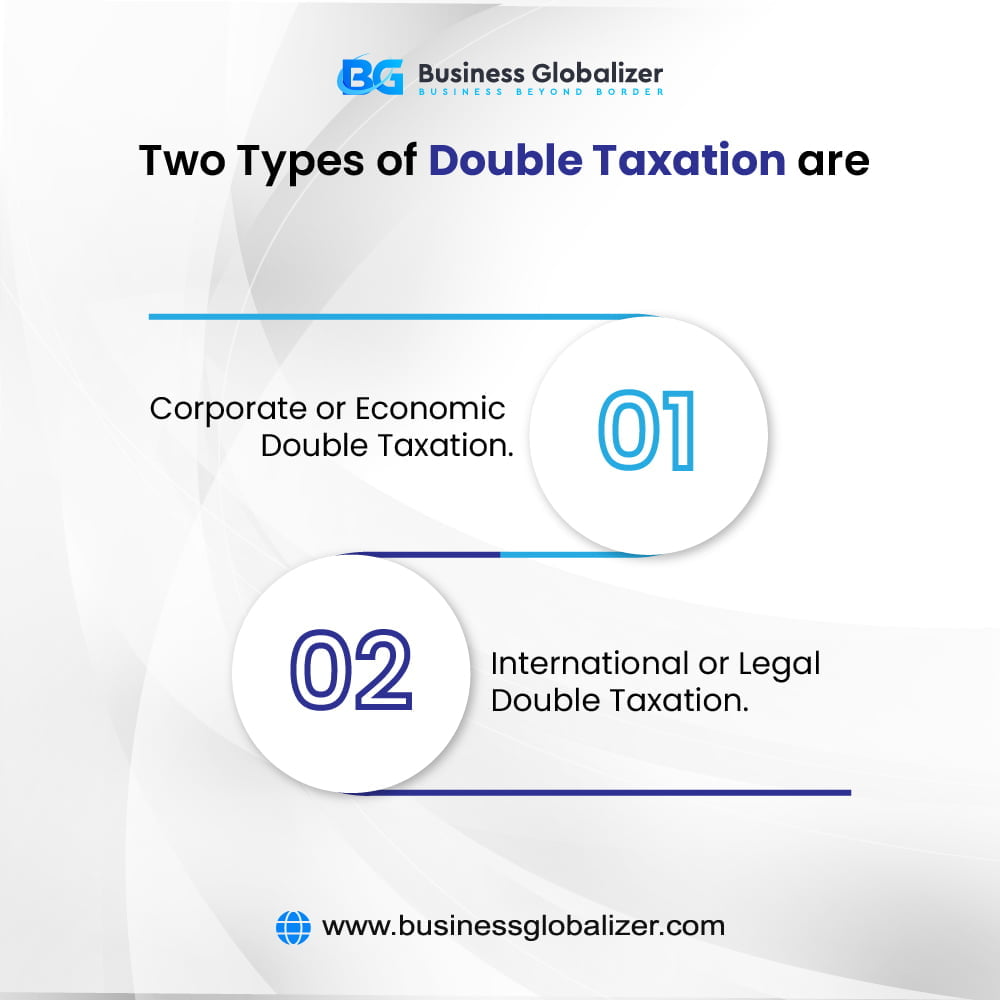
Double Taxation Example
Example- 1 (Corporate Or Economic Double Taxation)
In 2022, a company called BG made a profit of $500 million. As a corporation, it was subjected to a 21% tax in the first place. The rest of the money was split among the company’s three shareholders. Then, each individual was taxed at 37% on each share of profit or dividend. This is how corporate double taxation works.
Example- 2 (International Or Legal Double Taxation)
Imagine a scenario: Jessica is a successful businesswoman. She earns income in Canada and is also considered a tax resident in Australia. Now, both countries may claim the right to tax Jessica’s income. This can result in her being taxed twice on the same income, leading to financial burden and unfairness.
Double Taxation Treaty Explained
When a person or company pays taxes on the same income in two different countries, this is known as double taxation. This can happen if you live in one country but work in another or have assets in both.
A double taxation treaty, or DTT, is an agreement between two countries that helps to avoid people paying taxes twice on the same income. It usually covers things like income, capital, estate, and wealth.
Tax treaties can be extremely beneficial for businesses and individuals who operate in multiple countries. They can help save money on taxes and avoid legal problems.
Features of Double Taxation Treaties
Tax treaties are typically bilateral, which means they exist between two countries. However, multilateral tax treaties exist between more than two countries.
Typically, tax treaties are negotiated between the governments of the two countries involved. Before a tax treaty can go into effect, it must be ratified by the legislatures of both countries.
Tax treaties typically have a time limit, after which they must be renewed.
Types of Double Taxation Treaty
There are three types of Double Taxation Treaties. Take a look below-
- Bilateral Tax Treaties
Bilateral tax treaties are the most common kind of tax treaty. Most of the time, they are made between two countries that have strong economic ties. Bilateral tax treaties typically cover a wide range of topics-
- the definition of income,
- the allocation of taxing rights between the two countries,
- the treatment of withholding taxes, and
- the exchange of information between the two countries.
- Multilateral Tax Treaties
Agreements between more than two countries are referred to as multilateral tax treaties. These treaties are less common than bilateral tax treaties, but they can be beneficial for countries that share a desire to avoid double taxation. Multilateral tax treaties often cover the same topics as bilateral tax treaties, but they may also include provisions not found in bilateral tax treaties.
- Model Tax Treaties
Model tax treaties serve as templates for countries to use when negotiating their own tax treaties. The OECD (Organization for Economic Co-operation and Development) Model Tax Convention is the most well-known model tax treaty. Although the OECD Model Tax Convention is not a legally binding treaty, it is widely used as a starting point for countries negotiating their own tax treaties.
Other different types of DTTs are-
- Income Tax Treaties: These agreements cover income taxation, including wages, dividends, and interest.
- Capital Gains Tax Treaties: Treaties that deal with the taxation of capital gains, such as those from the sale of assets, are known as capital gains tax treaties.
- Treaties Relating to Inheritance Taxes: These treaties cover the taxation of inheritances.
Other than those types, there are some agreements, reliefs, methods, etc., in place to avoid double taxation.
How Do I Get a Double Taxation Treaty?
To get or claim a double taxation treaty, follow the steps given below-
- First, determine whether your country and the country where you earn income have a double taxation treaty. This can be accomplished by conducting an online search or contacting the tax authorities in both countries.
- Once you have identified a double taxation treaty, you must collect information about your income and residency status. Typically, this information will include your name, address, taxpayer identification number, and income you earn in another country.
- You must then request a double taxation treaty benefit from your country’s tax authorities. The procedure will differ depending on the country, so check with the tax authorities in your country for specific instructions.
- If your request is approved, you will receive a tax treaty benefit certificate. When you file your taxes, you can use this certificate to claim the benefits of the double taxation treaty.
Main Purposes of an International Tax Treaty
There are many purposes for an international tax treaty. Some of these are given below-
- Prevention of Double Taxation: Preventing double taxation is the primary goal of an international tax treaty. Double taxation occurs when taxpayers are taxed on the same income in two countries. A tax treaty can help to avoid double taxation by stating which country has the authority to tax specific types of income.
- Help Cross-border Trade and Investment: Tax treaties can help to facilitate cross-border trade and investment by lowering the tax burden on businesses and individuals who operate in multiple countries. This can make it more appealing for businesses to invest in other countries and make it easier for people to work and live in other countries.
- Promote Fair and Equitable Taxation: Tax treaties can help promote fair and equitable taxation by ensuring that all taxpayers are treated the same way, regardless of their income or country.
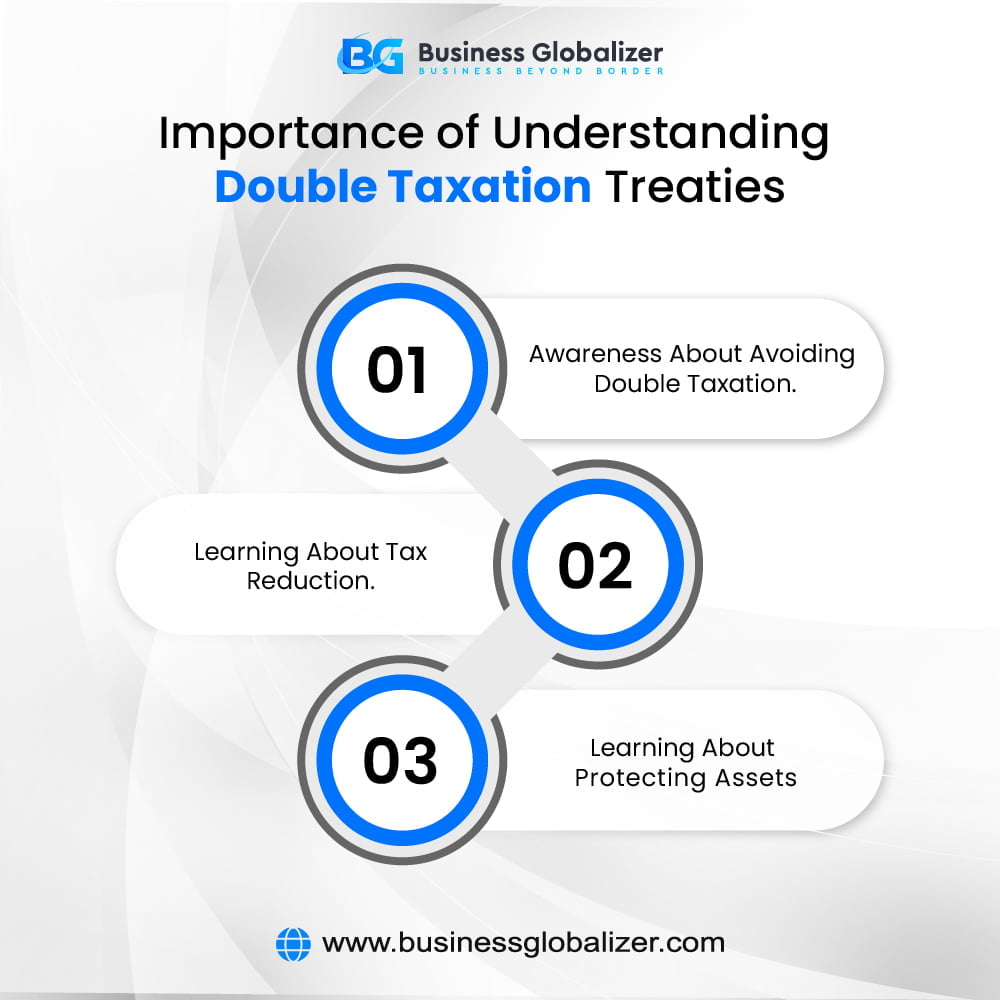
Importance of Understanding Double Taxation Treaties
Here are some of the important reasons why it is important to understand double taxation treaties:
- Awareness About Avoiding Double Taxation: Understanding double taxation treaties can make one aware of avoiding double taxation. It can also help to know about different kinds of relief from double taxation.
- Learning About Tax Reduction: One can learn about tax reduction through the double taxation treaty offerings.
- Learning About Protecting Assets: Understanding double taxation treaties can prepare individuals to protect their assets from being seized by foreign tax authorities.
What Is a Double Taxation Avoidance Agreement?
The DTAA, or Double Taxation Avoidance Agreement, is an agreement to avoid double taxation. This tax agreement between two countries helps taxpayers avoid paying income tax twice on the same income, asset, or financial transaction in two countries.
DTAA attempts to avoid double taxation by creating a mechanism for allocating taxing authority between the two countries.
A DTAA allows a person or business to receive lower tax rates or be exempt from paying taxes in one of the countries. It also helps remove tax barriers, encourage trade and investment across borders, and stop people from avoiding or evading taxes. The terms and conditions of a DTAA can vary depending on the agreement between the two countries.
How to Claim Double Taxation Relief
Countries use Double Taxation Relief (DTR), also referred to as a foreign tax credit, to prevent or lessen the double taxation that happens when a person or business earns income in more than one country.
To claim double taxation relief, you must first determine which income has been taxed more than once. This is frequently difficult in practice due to differences in the countries’ tax systems.
The amount of taxable income may be calculated differently, the exemptions and deductions that can be made from that income may differ, the year of assessment will almost certainly differ from that of the country you’re doing business in, and the tax rates and amounts of tax will differ.
You will need to file a return with the Income Tax Department of your country if you want to get help. You must also prove that taxes were paid in the other country.
If your claim for relief is accepted, you will only have to pay taxes on the money you made in your country. Or you will get the required relief.
Tax Treaty Benefits
Tax treaties are real lifesavers in cases of double taxation. There are several benefits of tax treaties. Some of those are given below-
- Avoid Double Taxation: If you live in one country but work in another, you may be required to pay taxes on the same income in both places. Tax treaties can help you avoid this by stating which country can tax your income.
- Reduce Your Tax Liability: Tax treaties can also help you reduce your tax liability by crediting you for taxes paid in another country. You might not have to pay as much tax in your home country.
- Protect Your Assets: Tax treaties can also help you avoid having your assets seized by foreign tax authorities. Most treaties require foreign tax authorities to notify you before seizing your assets.
- Gain Legal Certainty: Tax treaties can provide legal certainty regarding tax liability. The treaties establish how your income will be taxed in each country.
- Encourage Trade and Investment: Tax treaties can help countries promote trade and investment by lowering the risk of double taxation. This can facilitate business operations in multiple countries and encourage foreign investment.
- Protect Taxpayer’s Rights: Tax treaties can help protect taxpayers’ rights by ensuring fair and equitable treatment. This can help prevent taxpayers from facing discrimination or arbitrary taxation.
- Provide Certainty and Predictability: Tax treaties can provide taxpayers with certainty and predictability by specifying how their income will be taxed. This can help taxpayers plan their finances and avoid unpleasant surprises.
- Supports Social and Economic Growth: Treaties lay the groundwork for renewed relationships and a positive and stable climate that fosters social development and economic growth.
Tax Treaty Countries
Tax treaty countries are those that have signed a tax treaty with each other. These treaties are designed to avoid double taxation when a person or company is taxed on the same income in two countries.
Tax Treaty Countries UK
The list of countries with double taxation agreements with the UK is given below:
- Albania: tax treaties
- Algeria: tax treaties
- Anguilla: tax treaties
- Antigua and Barbuda: tax treaties
- Argentina: tax treaties
- Armenia: tax treaties
- Aruba: tax treaties
- Australia: tax treaties
- Austria: tax treaties
- Azerbaijan: tax treaties
To learn more about the list, click here.
US Tax Treaty Countries
The list of countries that have signed double taxation agreements with the US is given below-
- Armenia
- Australia
- Austria
- Azerbaijan
- Bangladesh
- Barbados
- Belarus
- Belgium
- Bulgaria
- Canada
To learn more about the list, click here.

Where Can I Get Double Taxation Treaty Consultations?
There are many places where you can get double taxation treaty consultation. Here are a few options-
- Tax Professionals: Accountants and lawyers, for example, can help you understand the terms of a double taxation treaty and how they apply to your situation. They can also assist you in filing your tax returns and negotiating with the tax authorities.
- Government Agencies: Many governments have websites or departments where you can find information about double taxation treaties. On these sites, you can often find contact information for tax experts who know about the treaties.
- Trade Associations: Trade associations representing multinational corporations frequently have information on double-taxation treaties. They may also be able to put you in touch with tax professionals who can assist you with your particular situation.
- Online Resources: Several online resources provide information about double taxation treaties. If you are unsure where to begin your research, these resources can be a good place to start.
Business Globalizer can also help you with premium consultations and give you clarification in taxing situations.
Double Taxation Treaty FAQs
Q1: Which Country Has the Best Double Taxation Treaty?
A: It is difficult to say which country has the best double taxation treaty, as the best treaty for one person may not be the best for another. However, some countries with good double taxation treaties include, but are not limited to:
- United States
- United Kingdoms
- Germany
- France
- Netherlands
Q2: How do I Benefit from Tax Treaties?
A: You can benefit from tax treaties by claiming a reduced withholding tax rate or an exemption from the US, UK, or any other country’s income taxes on certain items of income.
Q3: Is There a Double Taxation Treaty Agent?
A: Yes, there are many Double Taxation Treaty Agents (DTA Agents) who can help you understand and apply the terms of a double taxation treaty (DTA). These agents can advise you on your tax liability in different countries, help you file your tax returns, and negotiate with tax authorities.
Last Words
Finally, understanding Double Taxation Treaties is critical for anyone doing international business. These agreements act as nautical stars, guiding you through the complexities of cross-border taxation and ensuring you do not get lost in the maze.
Double taxation treaties help global ventures run more smoothly and profitably by preventing or avoiding double taxation and providing clarity. So arm yourself with this knowledge, and may these treaties serve as your compass in the vast sea of international business!
Happy ventures!




